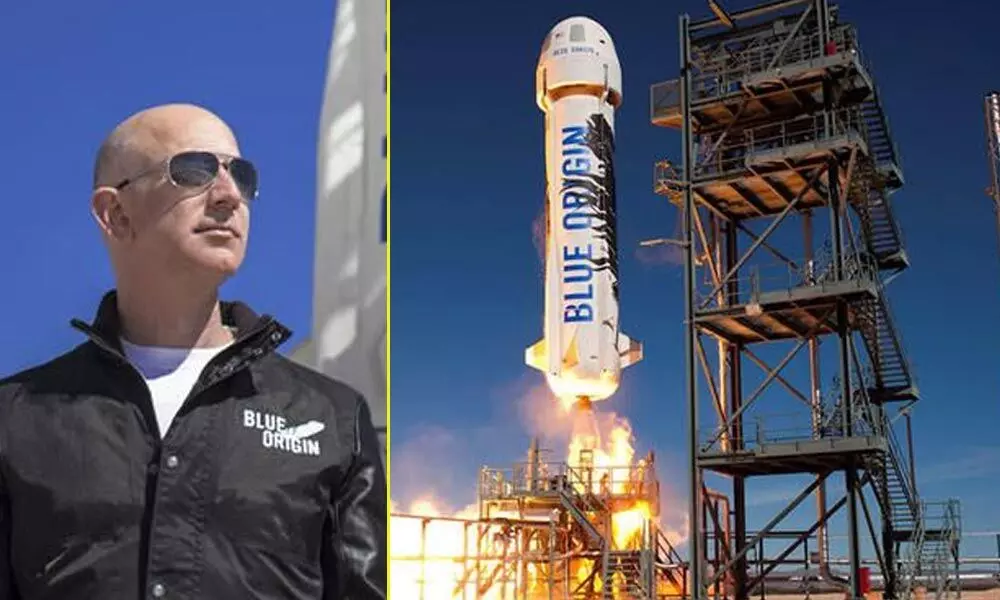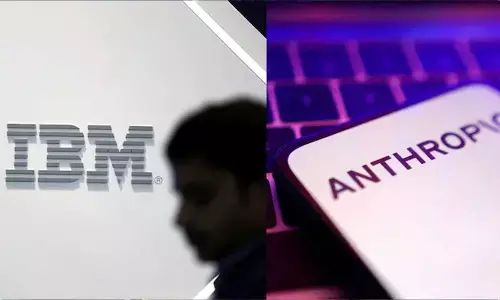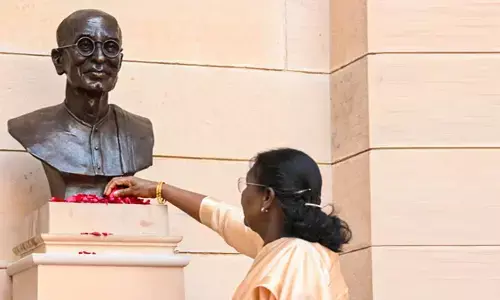Earth's richest man Jeff Bezos to blast off into space today

Earth’s richest man Jeff Bezos to blast off into space today
- Man, who paid $28 mn for space travel, drops out
- Daemon, 18, becomes first space passenger
- Bezos brother, 82-year-old aviation pioneer Funk also to fly in Blue Origin’s New Shepard capsule
Nine days after being upstaged by Richard Branson, Amazon founder Jeff Bezos is finally ready for his own flight into history, blasting off on Tuesday morning aboard a fully automated spacecraft he believes will usher in a new era of commercial passenger service.
Lift-off is set for 9 am EDT (1300 GMT) from Blue Origin's Launch Site One in West Texas. Launching on this flight will be Bezos, 57; his brother Mark Bezos, 53; aviation pioneer Wally Funk, 82; and physics student Oliver Daemon, 18, who is Blue Origin's first paying passenger. Funk, at age 82, will be the oldest person, while Daemon, at age 18, will the youngest to ever venture into space.
Reaching a slightly higher altitude than Branson's winged spaceplane, Bezos' New Shepard capsule is equipped with the largest windows ever built into a spacecraft, offering its briefly weightless passengers truly out-of-this-world views of planet Earth more than 62 miles below.
The New Shepard rocket and crew capsule blast off from the company's West Texas launch site for an unpiloted test flight. Tuesday's launch with company founder Jeff Bezos and three crewmates will be its first flight with people on board.
Like Branson before him, Bezos' presence aboard his New Shepard spacecraft is a public show of confidence in its readiness, after 15 successful but unpiloted test flights, to begin sub-orbital flights for wealthy space tourists and researchers flying at government or corporate expense.
Bezos is challenging fellow billionaire and SpaceX founder Elon Musk, spending billions to fund development of more powerful New Glenn rockets to launch satellites and eventually people to Earth orbit and beyond. "I want thousands of entrepreneurs doing amazing things in space. And to do that, we have to dramatically lower the cost of access to space," Bezos said.
Daemen is flying in place of an auction winner who bid $28 million for the seat only to opt out because of a schedule conflict. Blue Origin says the auction winner, who wants to remain anonymous, will take off on a later flight instead.
Daemen's father Joes Daemen, founder of Somerset Capital Partners, participated in the auction but dropped out as the price soared to astronomical heights. Still, his bid apparently purchased a seat for his son, who was assigned a ride on Blue Origin's second commercial flight. The company moved him up to the July 20 flight when the winning bidder postponed.
Unlike Virgin Galactic's VSS Unity spaceplane, which is launched from a carrier jet and glides to a runway landing after a brief visit to the lower edge of space, Blue Origin's New Shepard is a much more traditional rocket and capsule.
In a little more than two minutes, the single-stage booster will propel the capsule and its crew straight up to an altitude of about 32 miles and a velocity of some 2,200 mph before main engine shutdown. Less than 30 seconds later, at an altitude of about 45 miles, the crew capsule will be released to fly on its own.
While the reusable booster heads back to landing on a nearby pad, the crew capsule will continue upward on an unpowered, ballistic trajectory, reaching a maximum altitude of just above 62 miles three-and-a-half minutes after takeoff.
The Fédération Aéronautique Internationale (FAI), an international body based in Switzerland that certifies aerospace records, considers an altitude of 100 km, or 62 miles — a level known as the Kármán Line — as the dividing line between the discernible atmosphere and space.
Virgin Galactic's spaceplane flies just above 50 miles, meeting the NASA and FAA standard for spaceflight but not the FAI's. Blue Origin's capsule exceeds both altitudes — a distinction the company does not hesitate to point out.
"Only 4% of the world recognizes a lower limit of 80 km or 50 miles as the beginning of space," Blue Origin, referring to the US agencies, tweeted two days before Branson's flight.
Approaching the top of the trajectory, Bezos and his crewmates will experience about three minutes of weightlessness, enough time to unstrap and float about the cabin while enjoying spectacular views of Earth through six windows more than a three feet tall and nearly two-and-a-half feet wide. Then, plunging back into the lower atmosphere, the capsule will rapidly decelerate, subjecting the passengers to about four times the normal force of gravity, before three large parachutes unfurl, lowering the craft to a gentle touchdown a few miles from the launch pad.
From lift-off to landing, the entire flight lasts about 10 minutes. It's not yet known how much Blue Origin will charge for the short ride to space, but tickets are expected to run higher than $200,000, or more than $20,000 per minute of flight.
Whatever the actual number, that astronomical cost has triggered harsh criticism in some quarters.








